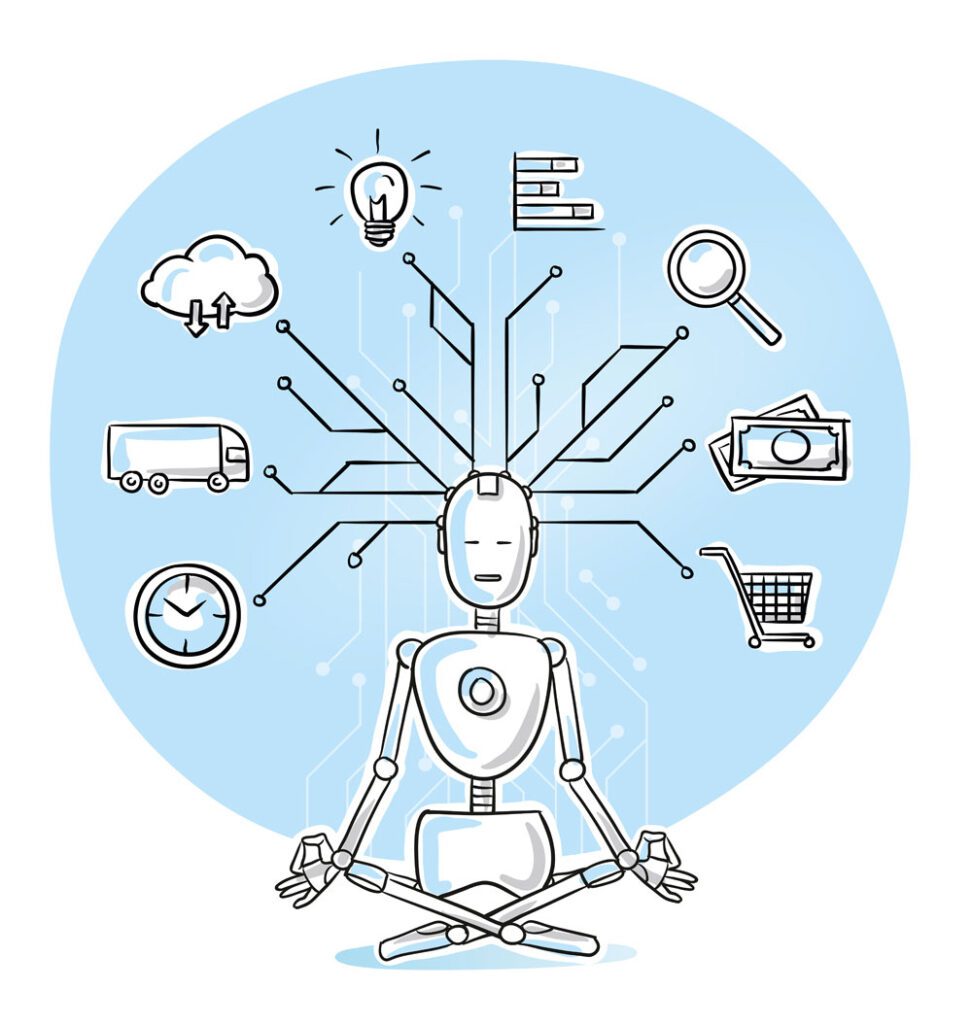If there’s one thing the ad tech industry didn’t need, it was another three-letter acronym.
But here we are. HWA.
Last week, WPP Media launched Open Intelligence, touting it as the ad industry’s first LMM.
LMMs, or Large Marketing Models, aren’t to be confused with LLMs, or Large Language Models. LLMs generate content, while LMMs use patterns to “understand and predict audience behavior and marketing performance,” per the release.
Acronyms aside, Open Intelligence was designed to help advertisers make sense of their data and use it in more ways, with a longer-term goal of decentralizing data. Currently, much of that data resides in large data warehouse companies that are also huge ad platforms (like Google and Amazon).
Open Intelligence can be “brought to life” in three ways, Rich Astley, global CPO at Choreograph, WPP’s data and technology company, told AdExchanger.
The first, he said, is through an analytics and planning platform, Open Media Studio. Clients can also implement Open Intelligence as a managed service, more for digging into data analytics or doing custom audience building. Lastly, it can be implemented through its media-buying services, providing Open Intelligence’s resources even in walled gardens through different activation paths.
In with the new
Historically, advertisers took data from original source providers, such as publishers, and moved that to a centralized database, said Astley. Once the data was set, brands could work on their own data or compare it to others. But to be used in live advertising campaigns, these databases needed to be constantly shared and mapped.
The trend nowadays is that “instead of moving the data into a central database, you actually move the model to where the data resides,” he explained.
“You move the model out to what we call the edge,” he said, “and what you extract back out is a very accurately trained model that you bring back to inform a larger model, which we call a foundational model.”
(Look, we’re all trying to figure out how to explain this.)
Beyond the obvious privacy benefits of this decentralized model, where data resides in one place and vendors or applications build on top of that, WPP also aims to make better use of data that’s often overlooked.
Sometimes, 90% of a business’s data can’t be attached to a third-party ID solution, Alex Steer, global chief data officer at Choreograph, told AdExchanger. That might be data organized by store, keyword, geography, browsing patterns or anything else that doesn’t attach itself to an individual user.
“There is ID-based data in there,” Steer said. But by using an AI service to analyze large anonymized data and then create modeled audiences, “you can find more common patterns and use more of the data that organizations have.”
Human touch
When asked about the potential effect that Open Intelligence will have on the job market (or its own employee ranks), particularly entry-level media positions, Astley was quick to insist the product will not result in a loss of human roles. At least at WPP.
And besides, every emergent technology starts out as a culture shock. “If you go back to the 1950s, ‘computer’ used to be a job title,” Steer said. “There were people whose jobs were ‘computer.’” (Okay, Ken. We kid, we kid.)
Historically, compiling and analyzing so many data sets was exhausting labor that resulted in fewer insights, Astley said. AI can speed this process up and allow people to think about data in new ways.
Working with AI “stretches the capabilities” of what any one person could do on their own, he added. “It should be a superpower for people.”














